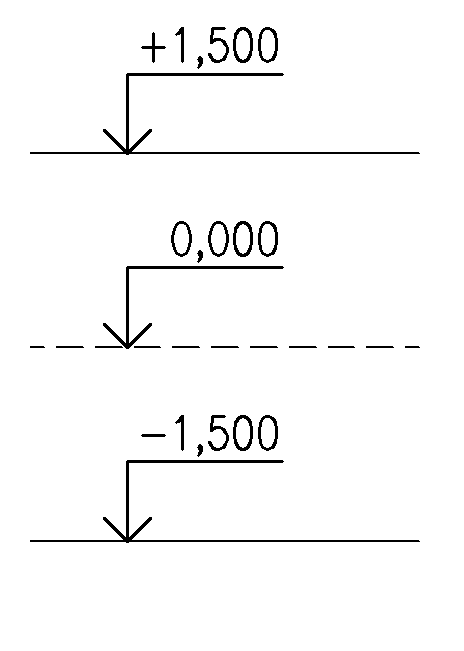Over 1.113.000 registered users (EN+CZ).
AutoCAD tips, Inventor tips, Revit tips, Civil tips, Fusion tips.
The new Beam calculator, Spirograph generator and Regression curves in the Converters section.
 Discussion forum
Discussion forum
?CAD discussions, advices, exchange of experience
 CAD discussion forum - ask any CAD-related questions here, share your CAD knowledge on AutoCAD, Inventor, Revit and other Autodesk software with your peers from all over the world. To start a new topic, choose an appropriate forum.
CAD discussion forum - ask any CAD-related questions here, share your CAD knowledge on AutoCAD, Inventor, Revit and other Autodesk software with your peers from all over the world. To start a new topic, choose an appropriate forum.
Please abide by the rules of this forum.
This is a peer-to-peer forum. The forum doesn't replace the official direct technical support provided by ARKANCE for its customers.
How to post questions: register or login, go to the specific forum and click the NEW TOPIC button.
|
Post Reply 
|
Page 12> |
| Author | |
PepaR 
Senior Member 
Joined: 09.Jul.2008 Location: Czech Republic Status: Offline Points: 149 |
 Topic: Spot heights (levels) in AutoCAD Topic: Spot heights (levels) in AutoCADPosted: 10.Mar.2011 at 20:18 |
|
Dear users,
alfred and me prepare small package contains utility and dynamic block for spot heights. We would like share international version with you for free. Enjoy it.  Note: We aren't native english speakers and commets are welcome. Please send us feedback or suggestions. PepaR and alfred
Edited by PepaR - 11.Mar.2011 at 08:19 |
|
|
PepaR
|
|
 |
|
John Connor 
Senior Member 
Joined: 01.Feb.2011 Location: United States Using: AutoCAD 2018 Status: Offline Points: 7175 |
 Posted: 11.Mar.2011 at 00:32 Posted: 11.Mar.2011 at 00:32 |
|
I've been looking for something like this. Your efforts are appreciated. Thanks for sharing with us.
|
|
|
"Humans have a strength that cannot be measured. This is John Connor. If you are reading this, you are the resistance."
<<AutoCAD 2015>> |
|
 |
|
PepaR 
Senior Member 
Joined: 09.Jul.2008 Location: Czech Republic Status: Offline Points: 149 |
 Posted: 11.Mar.2011 at 06:45 Posted: 11.Mar.2011 at 06:45 |
|
Thanks for feedback, We are thinking about support for inches. Is it important for you?
Edited by PepaR - 11.Mar.2011 at 07:28 |
|
|
PepaR
|
|
 |
|
John Connor 
Senior Member 
Joined: 01.Feb.2011 Location: United States Using: AutoCAD 2018 Status: Offline Points: 7175 |
 Posted: 11.Mar.2011 at 11:56 Posted: 11.Mar.2011 at 11:56 |
|
Support for imperial units would be very useful to me as 95% of the drawings I work on are done in those units.
|
|
|
"Humans have a strength that cannot be measured. This is John Connor. If you are reading this, you are the resistance."
<<AutoCAD 2015>> |
|
 |
|
AlfredCZ 
Newbie 
Joined: 11.Mar.2011 Location: Czech Republic Using: AutoCad MAP 2011 Status: Offline Points: 4 |
 Posted: 11.Mar.2011 at 13:42 Posted: 11.Mar.2011 at 13:42 |
For modification LISP I need know consuetudes for draving in inches. Mainly I need settings of DIMSCALE, UNITS, printing measure. This is example of drawing in milimeters. Could you draw example in inches like this? http://alfredcadpage.wz.cz/kotavysk/example-mm.dwg |
|
 |
|
John Connor 
Senior Member 
Joined: 01.Feb.2011 Location: United States Using: AutoCAD 2018 Status: Offline Points: 7175 |
 Posted: 11.Mar.2011 at 14:32 Posted: 11.Mar.2011 at 14:32 |
|
I cannot speak for the entire CAD community in the U.S. I can only tell you what would be useful to me.
When setting elevations for slabs and floors we use decimal feet and inches. For example 12" would be shown as 1.00' and 15" would be shown as 1.25'. This is derived from the civil/surveying disciplines. Architects would most likely use architectural units (feet, inches, and fraction of inches). Examples: 1'-0", 1-3" and 1'-6 1/2". Unfortunately most Americans never adapted to the metric system (although some segments have: scientific, medical, high-tech machining) so you'll find different variations of the imperial system amongst different disciplines. |
|
|
"Humans have a strength that cannot be measured. This is John Connor. If you are reading this, you are the resistance."
<<AutoCAD 2015>> |
|
 |
|
Cad64 
Senior Member 
Joined: 17.Apr.2010 Location: United States Using: Autocad 2011, 3DS Max 2011, Photoshop CS5 Status: Offline Points: 491 |
 Posted: 11.Mar.2011 at 15:58 Posted: 11.Mar.2011 at 15:58 |
I've been working in the architectural field for 7 years and spot elevations are always shown in decimal feet and inches. Since that's how the file comes in from the surveyor, there's no need to change to a different style of units. It would just confuse things if the existing grade was shown as 35.25 and then the proposed grade was shown as 36'-3 1/2". The contractor would be out there scratching his head trying to figure out the conversion from fractional to decimal or decimal to fractional in order to figure out how much to raise the grade. |
|
|
Online Portfolio: http://www.rdeweese.com/
|
|
 |
|
John Connor 
Senior Member 
Joined: 01.Feb.2011 Location: United States Using: AutoCAD 2018 Status: Offline Points: 7175 |
 Posted: 11.Mar.2011 at 16:35 Posted: 11.Mar.2011 at 16:35 |
|
Spot elevations, in civil engineering, are always called out in decimal feet and inches as Cad64 has mentioned. BUT I have a set of architectural plans for an R&D building where the floor elevations are expressed in feet and inches using architectural units.
Maybe I have the wrong impression here when the lisp routine mentioned speaks of spot elevations. Are we talking about those used in surveying or about elevations as they pertain to the height of a floor? |
|
|
"Humans have a strength that cannot be measured. This is John Connor. If you are reading this, you are the resistance."
<<AutoCAD 2015>> |
|
 |
|
Cad64 
Senior Member 
Joined: 17.Apr.2010 Location: United States Using: Autocad 2011, 3DS Max 2011, Photoshop CS5 Status: Offline Points: 491 |
 Posted: 11.Mar.2011 at 17:12 Posted: 11.Mar.2011 at 17:12 |
|
When I think of spot elevations, I think of a grading plan with finish grade, finish surface, top of wall, etc. That's always done in decimal units, same as the surveyors plan. An architects plan for his building might be a different story, but I've never seen a plan that used fractional units for elevations.
|
|
|
Online Portfolio: http://www.rdeweese.com/
|
|
 |
|
John Connor 
Senior Member 
Joined: 01.Feb.2011 Location: United States Using: AutoCAD 2018 Status: Offline Points: 7175 |
 Posted: 11.Mar.2011 at 17:53 Posted: 11.Mar.2011 at 17:53 |
|
After reading the initial post that started this thread I guess I'm still confused. It refers to "spot heights". When someone uses the word "height" I immediately think of a building. When someone says "elevation" I immediately think of a survey, perhaps a contour map or a site plan with "spot elevations". The nuance of speech is sometimes our worst enemy especially when we start conversing around the world with our counterparts in England, Asia, central Europe, etc.
|
|
|
"Humans have a strength that cannot be measured. This is John Connor. If you are reading this, you are the resistance."
<<AutoCAD 2015>> |
|
 |
|
Post Reply 
|
Page 12> |
|
Tweet
|
| Forum Jump | Forum Permissions  You cannot post new topics in this forum You cannot reply to topics in this forum You cannot delete your posts in this forum You cannot edit your posts in this forum You cannot create polls in this forum You cannot vote in polls in this forum |
This page was generated in 0,086 seconds.
![CAD Forum - tips, tricks, discussion and utilities for AutoCAD, Inventor, Revit and other Autodesk products [www.cadforum.cz] CAD Forum - tips, tricks, discussion and utilities for AutoCAD, Inventor, Revit and other Autodesk products [www.cadforum.cz]](/common/arkance_186.png)









 Spot heights (levels) in AutoCAD
Spot heights (levels) in AutoCAD Topic Options
Topic Options John Connor wrote:
John Connor wrote:


